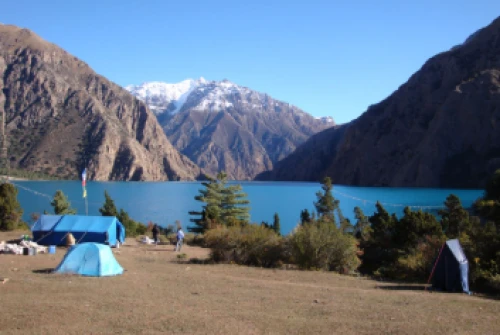A trip to Shivalaya Secondary School combines compassion and adventure in a remote village that few ventures into. Baseri Volunteer Program (BVP) is primarily designed to bring forth coordinated efforts of all the experts and interested individuals in different areas under one platform and work towards achieving its common goal and mission. It provides a unique opportunity for volunteers to live and work in remote Nepal. In this volunteering program trip, an individual gets a chance to contribute to the sustainable development of Nepal, especially in Baseri Dhading. An isolated village like Baseri lacks sufficient qualified and educated individuals. Who could otherwise contribute significantly to the well-being of the community? Brain drain and a lack of education opportunities have left the region bereft of crucial human capital. Whether in the education, health, or other technical sectors, the problem has become rampant. All Nepal Hiking and All Nepal Foundation have assessed the need for qualified volunteers to fill that gap. The itinerary is very flexible and can be modified as required. You'll get enough opportunities to witness the traditional lifestyle and culture of the typical Nepalese people.
During your free time, you can indulge in farming methods using bulls and other beasts of burden. Besides the fun and mud in the field, you get a sense of how deprived the Nepalese farmers are of modern technologies.
Further, you could do some fishing in the Budi Gandaki and Adheri Rivers, which are very popular among fishermen. Bathing in the rivers, creeks, and spring water will be relaxing. Volunteers will have time off at weekends to explore the region, and so can take a scenic Hiking trip up the Lower Manaslu route, watch the sunset from Bhaise/Hille Danda, swim in the Budi Gandaki River; Nepal is culturally rich, and in the autumn season, there will be multiple festivals held in the village and the markets. These rituals are very lively, colorful and involve a lot of folk dancing and singing. There will be plenty to do in the village to experience a new way of life in this secluded region.
NOTE: During the trip, weather, local politics, transport, or many other factors beyond our control can result in a change of itinerary. However, it is doubtful that the itinerary would be substantially altered; if alterations are necessary, the leader will decide the best alternative, considering the whole group's best interests. Where a change does occur, we do everything we can to minimize its effect, but we cannot be responsible for the results of changes or delays.
Important Note
Transportation in the region may not always be reliable because even in 4WD vehicles, stranded trucks and buses, car accidents, heavy rain, and landslides may ground all vehicles for hours on end. During such unforeseen circumstances, you must always be prepared to trek to the destination (accompanied by our staff guides).
If the 4WD cannot take you to the final destination, the transportation cost will not be refunded because the above will already be accounted for in advance. If trekking is necessary, you can be assured that the route trails through the most pristine and traditional villages, exposing you to the traditional Nepalese culture and lifestyle up close. Manaslu and the Ganesh mountain ranges and parts of the himalayas and range are visible from the path making the trek wonderful.
The lifestyle and way of the people in these small villages are authentic displays of traditional culture in Nepal, with very little influence of Westernization, unlike the cities. Because of this, Volunteers should be aware that they may experience a little culture shock upon arrival. Villagers speak louder and more aggressively than volunteers may be used to, although this is simply normal conversation. Physical disciplining (such as hitting and using the strap) is a common and old practice in Government schools, and although the Government is working on phasing this out, it will take some time. Some traditional cultural methods involved animal cruelty. Animals are sacrificed in traditional Hindu festivals and other cultural activities, such as visiting the witch doctor—many people in the village smoke cigarettes. Hygiene levels are often much lower in the villages, as local people have a much higher capacity for infection. It is helpful for volunteers to be aware of this when interacting with children and accepting food from villagers so that they may reduce the chances of getting sick.



